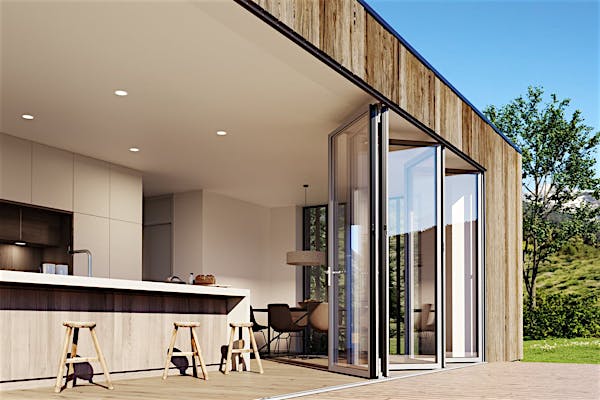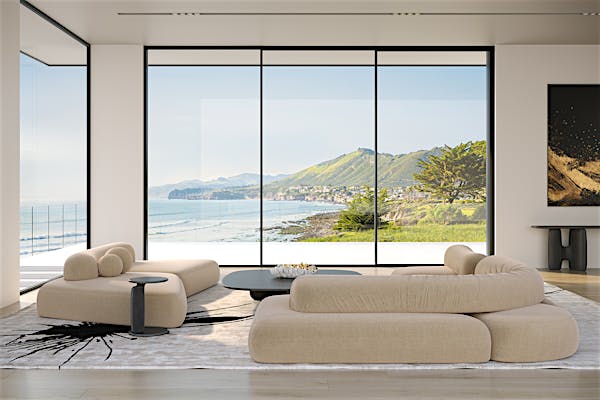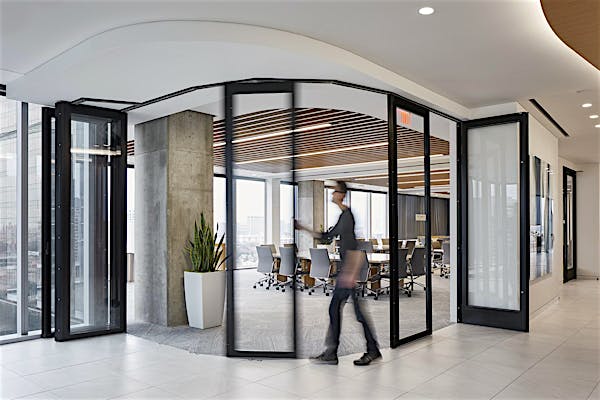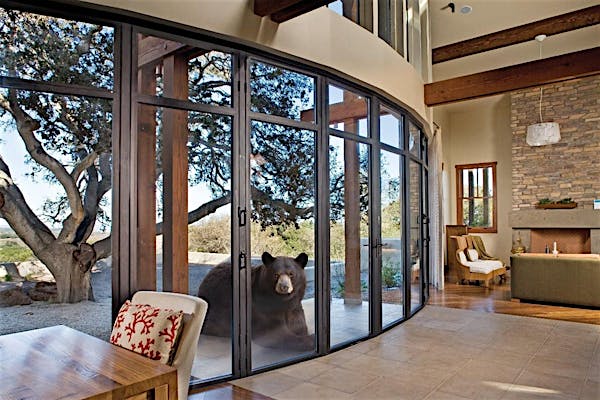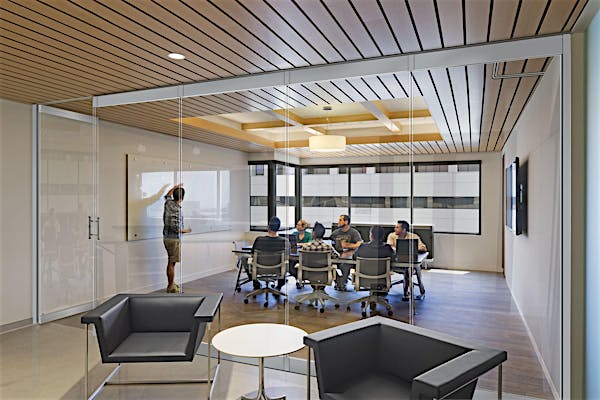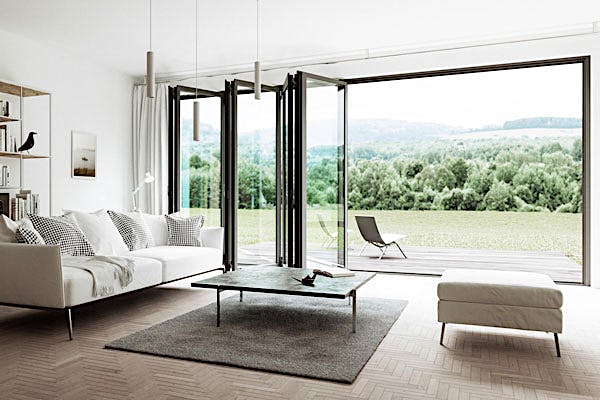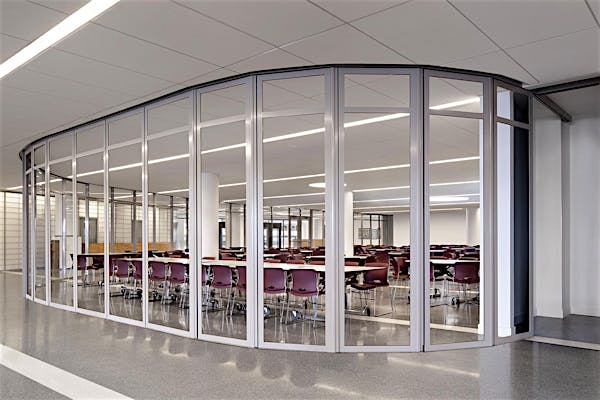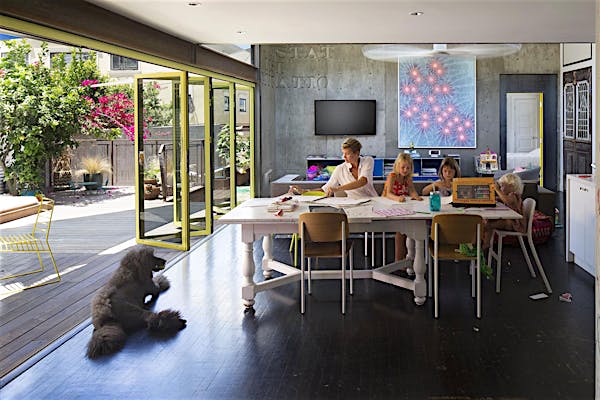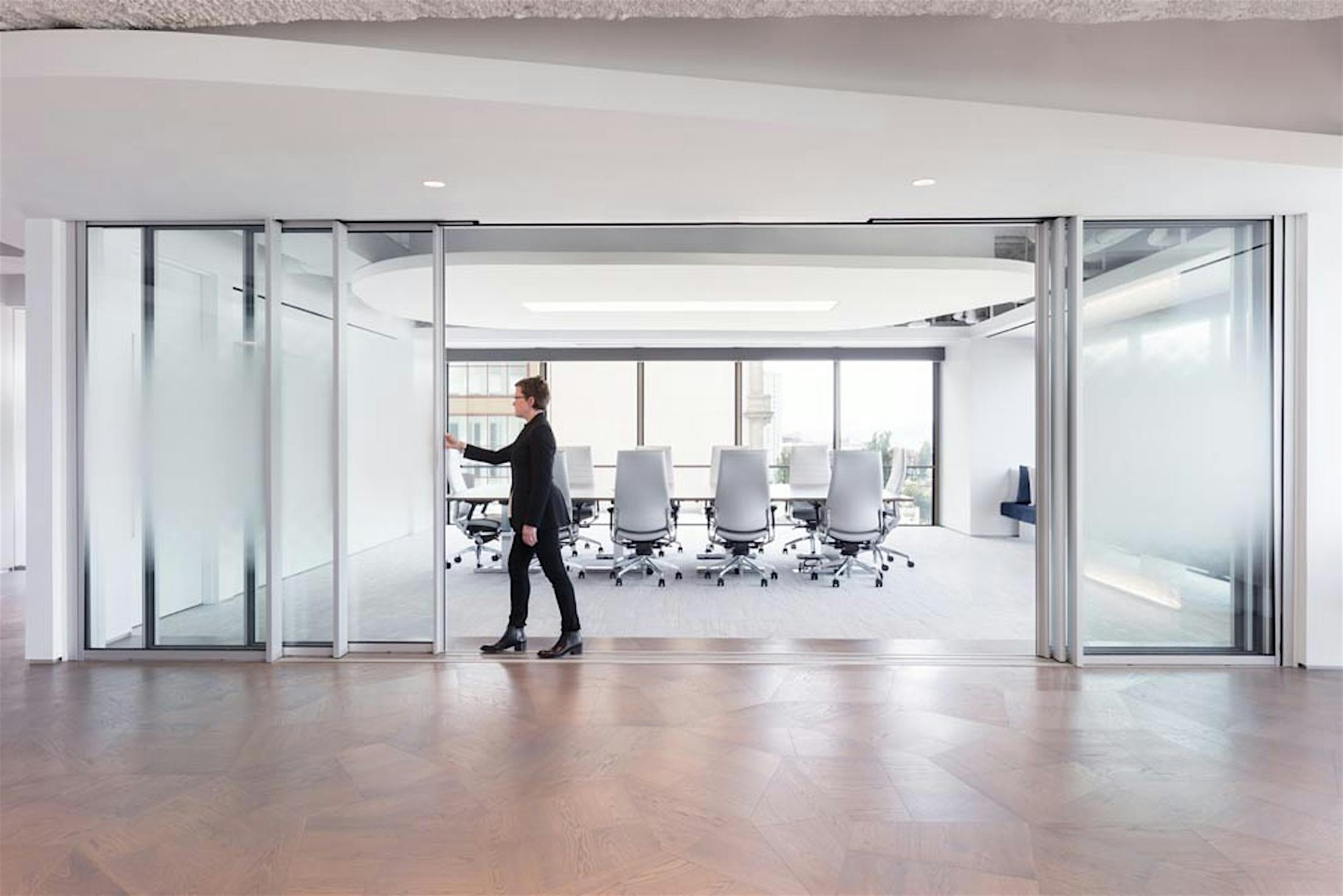
Did you know that the average office size is shrinking? By 2020, office workers are expected to be working in an average of 120 square feet of workspace. Considering the typical office user had an average of 225 square feet in 2010, there has been a trend of downsizing. It makes sense as companies strive to save money and attract new generations of workers which are drawn to non-traditional office layouts. This development has also caused a shift in office design and how materials are used. The use of interior glass doors in commercial spaces, for example, has become more and more popular. It has allowed many businesses to reduce their space and thus decrease their rent and utility costs while simultaneously giving the office an open look. All the while, interior commercial glass doors have been found to have psychological benefits and improve the workplace culture.
Advantages of Commercial Interior Glass Doors
As a business owner, you expect a lot from your business and have high hopes for your workplace culture. The great thing is a few simple designs and utilizing resources well, can make a big impact. Interior glass doors can boost your workplace culture in unexpected ways. It can cause your workplace to become more productive, creative, collaborative, and playful. These advantages stem from an interior glass door system’s ability to minimize sound, improve employee communication, and maximize natural light. With that said, not all interior glass door systems are built the same and you will need to be careful of the specific products you choose.
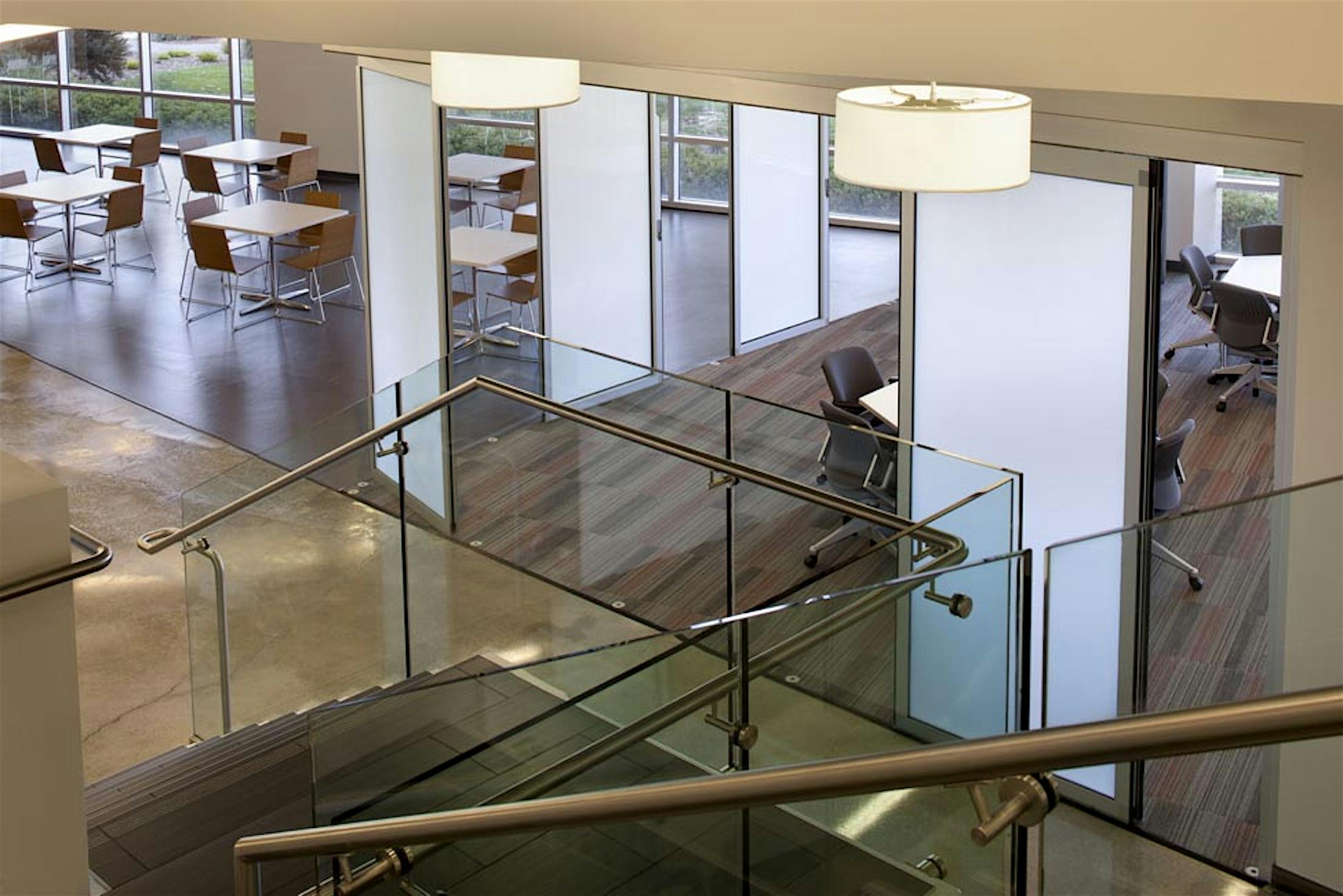
Commercial Interior Glass Doors Minimize Sound
Interior commercial glass doors bring plenty of benefits to employees, including reducing acoustical and privacy concerns. While being seen more often and watched by management is often a concern of employees, commercial interior glass doors still do offer plenty of privacy for telephone and personal conversations because interior commercial glass doors do help buffer sound. If you’re concerned about privacy and sound levels in the building, then make sure to choose the right product for your need. For example, NanaWall offers a specific product to satisfy this need. NW Acoustical 645 is the only floor supported folding opening glass wall to achieve sound control up to STC 45. This glass door system combines aluminum framing and specialized gasketing with sound enhanced glass all while allowing transparency and natural daylight to flood interior spaces. The NW Acoustical 645 can also be configured with a swing door at the side jam at one end or both for even more flexibility. This is the perfect design element to create a non-traditional working environment for the employees you want to attract.
Commercial Interior Glass Doors Improve Employee-to-Employee Communication
Interior commercial glass doors can improve communication in the workplace. According to Allegion, commercial interior glass doors have become a popular trend in business buildings as they allow workers to no longer be separated by cubicles. Instead, employee-to-employee communication is improved because employees can all feel like they are in one large room together, an experience that they won’t get inside a small cubicle. Employees still have their own spaces and room to be creative as individuals, but their environment with commercial interior glass doors is far more open, promoting more communication and collaboration than what the use of cubicles could permit.
When a large group of people working for the same company share the space, then they experience a rise in engagement and productivity as a group, helping boost the businesses’ success overall. For example, according to an article by Gallup, there is a functional correlation of employee engagement that helps predict important performance results across the business. When companies are able to have an average of 9.3 engaged employees for each disengaged employee, they experience a 147% increase in earnings per share or (EPS) compared with companies that do not actively engage their employees. Commercial interior glass doors increase employee communication, creating an atmosphere where workers are more engaged, and the business experiences a greater rate of success.
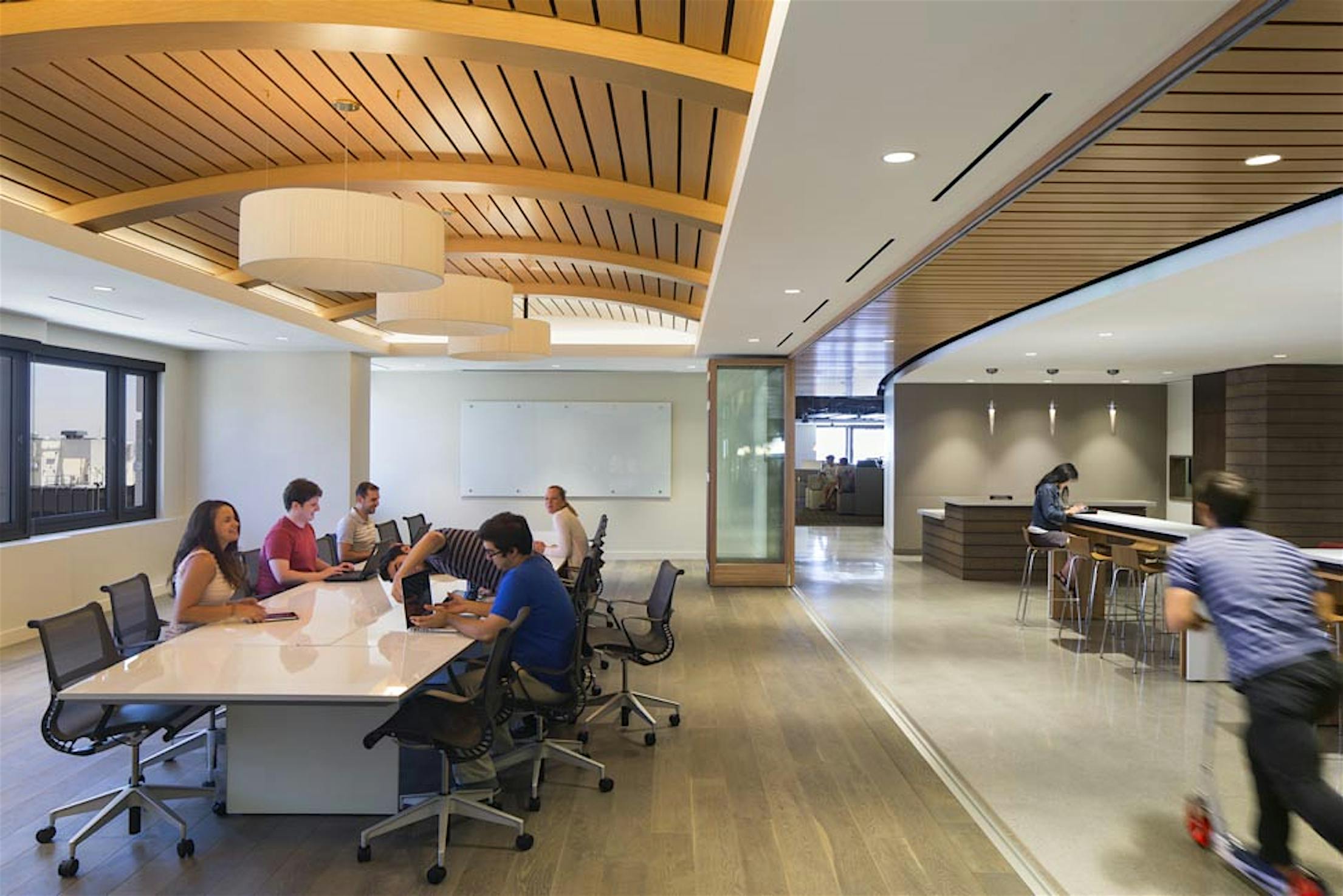
Commercial Interior Glass Doors Let in Natural Light
Natural light has an important say in employee satisfaction in the workplace, and that’s where commercial interior glass doors can come in handy. These doors let in more natural light, and the more natural light in an office, the greater the level of functionality the employees in the office will experience. Basically, natural light is one easy and simple design tweak you can make by installing interior commercial glass doors.
Natural light helps provide improved productivity in the workplace. Since employees are visible through glass and can be more closely monitored, they are much more likely to stay focused and productive with their projects than if they are hidden behind solid doors and cut off from your view. Remember that the use of commercial interior glass doors does not mean that employees will be watched continuously throughout the day and lose all sense of privacy. Instead, it means that employees will become aware of the possibility they are being watched, and that is usually enough to boost their level of productivity.
Final Thoughts
While office square footage has decreased, the importance of company culture has increased. Luckily, the two are not exclusive. Use interior glass doors and glass wall systems to your advantage by capitalizing on the psychological benefits they offer. NanaWall can partner with your company to create the perfect working environment and interior design for your office or commercial space.
To discuss how NanaWall glass walls can transform your office space, please contact your local representative.
